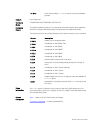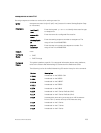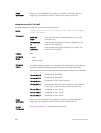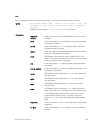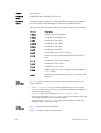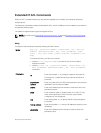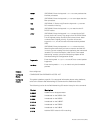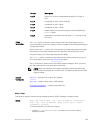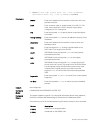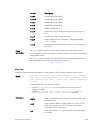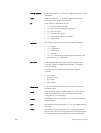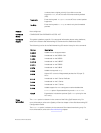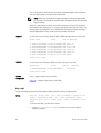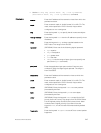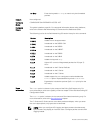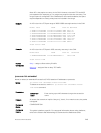• Use the no deny icmp {source mask | any | host ip-address}
{destination mask | any | host ip-address} command.
Parameters
source Enter the IP address of the network or host from which the
packets were sent.
mask Enter a network mask in /prefix format (/x) or A.B.C.D. The
mask, when specified in A.B.C.D format, may be either
contiguous or non-contiguous.
any Enter the keyword any to specify that all routes are subject
to the filter.
host ip-address Enter the keyword host then the IP address to specify a host
IP address.
destination Enter the IP address of the network or host to which the
packets are sent.
dscp Enter this keyword dscp to deny a packet based on the
DSCP value. The range is from 0 to 63.
count (OPTIONAL) Enter the keyword count to count packets
processed by the filter.
byte (OPTIONAL) Enter the keyword byte to count bytes
processed by the filter.
order (OPTIONAL) Enter the keyword order to specify the QoS
priority for the ACL entry. The range is from 0 to 254 (where
0 is the highest priority and 254 is the lowest; lower order
numbers have a higher priority) If you did not use the
keyword order, the ACLs have the lowest order by default
(255).
fragments Enter the keyword fragments to use ACLs to control packet
fragments.
no-drop Enter the keywords no-drop to match only the forwarded
packets.
Defaults Not configured.
Command
Modes
CONFIGURATION-EXTENDED-ACCESS-LIST
Command
History
This guide is platform-specific. For command information about other platforms,
refer to the relevant Dell Networking OS Command Line Reference Guide.
The following is a list of the Dell Networking OS version history for this command.
Version Description
9.8(0.0) Added the no-drop parameter.
9.7(0.0) Introduced on the S6000–ON.
242
Access Control Lists (ACL)



